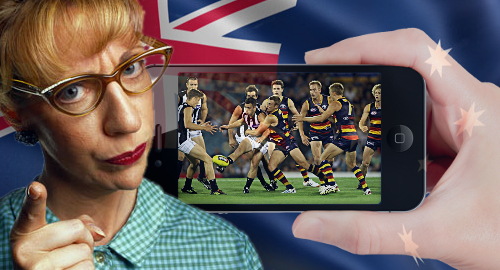Gambling Advertising Restrictions Australia 3,5/5 9681 reviews
- To support your compliance with the advertising rules, CAP’s guidance, Gambling advertising: protect children and young people, was released in February 2019. Advertising and sponsorship in sport We expect licensees to ensure that when agreeing commercial deals with sports clubs, that all parties are aware of, and compliant with, the relevant.
- Gambling advertising is the promotion of gambling by casinos, lotteries, bookmakers or other organisations that provide the opportunity to make bets. It is usually conducted through a variety of media or through sponsorship deals, particularly with sporting events or people. Although not as highly regulated as tobacco advertising and alcohol advertising, in many countries there are strict.
- Gambling Advertising Restrictions Australia International
- Gambling Advertising Restrictions Australia Fires
Gambling advertising has increased rapidly over the past decade. While smartphones, apps and social media have multiplied the marketing possibilities, a High Court decision in 2008 also played a major part in the dramatic increase in gambling advertising. The effect of the ruling was to allow bookmakers to offer bets anywhere in Australia.
Trump Labels Negative Phone Call With Turnbull as Exaggerated and 'Fake News'...
Trump Labels Negative Phone Call With Turnbull as Exaggerated and 'Fake News'
Cameron Smith celebrates the Kangaroos’ win against New Zealand in the NRL Anzac Test at GIO Stadium, Canberra. Picture: Mark EvansSource:News Corp Australia
IF YOU’RE sick of being constantly bombarded with gambling ads during the footy and cricket, there is some relief in sight.
Prime Minister Malcolm Turnbull has announced a ban on gaming advertisements during live sport before 8.30pm.
The ban, which will cover all sports broadcasts on TV and radio except racing, will start five minutes before kick-off and end five minutes after full time.

Prime Minister Malcolm Turnbull has discussed his gambling ad crackdown a day after he appeared on stage in New York to mark the 75th anniversary of the Battle of the Coral Sea. Picture: AFP/Brendan SmialowskiSource:AFP
“Parents all around Australia will be delighted when they know that during football matches and cricket matches, live sporting events before 8.30, there’ll be no more gambling ads,” Mr Turnbull told reporters Friday morning in New York, where he travelled to meet US President Donald Trump.
“This will be welcomed by Australian parents right around the nation.”
Gambling Advertising Restrictions Australia International
The ban covers not only ad breaks, but also on-screen promotions, sponsorships and live crosses to betting companies during the matches, according to the Herald Sun.
Expect to see fewer ads for betting agencies during live sport, such as the NRL Anzac Test. Picture: Mark EvansSource:News Corp Australia
The crackdown is intended to curb problem gambling and make watching sport more family-friendly.
The changes will be officially announced today as part of a broader suite of reforms to the TV industry.
While the gambling ad restriction will mean a loss in revenue for Seven, Nine and Ten, the government has vowed to scrap the $130 million licence fee free-to-air TV networks pay each year, according to The Australian.
The government will also abolish media diversity laws that prevent mergers and restrict how many assets companies can own in each Australian city.
The changes also mean Foxtel and other pay-TV companies can bid to broadcast more sport that, until now, free-to-air networks have had first dibs on.
Gambling Advertising Restrictions Australia Fires
The reforms come at a time when TV networks are struggling for advertising revenue as audiences fragment and drift towards Netflix.